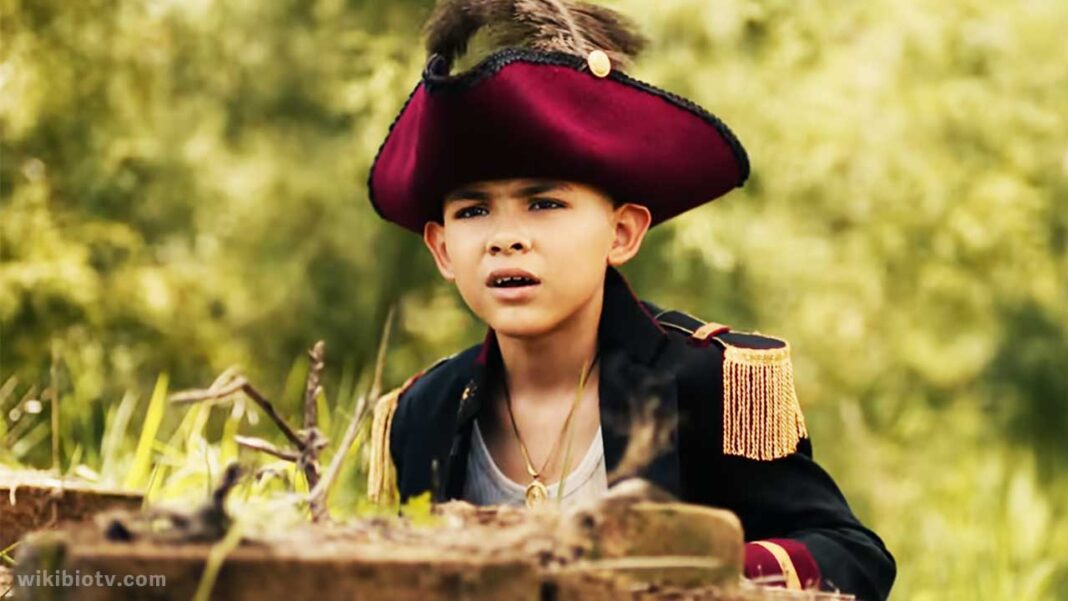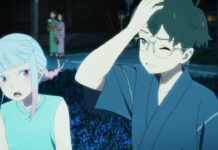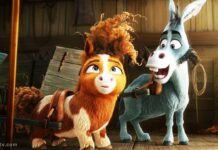
“Down the Rabbit Hole” (or “Fiesta en la Madriguera” in Spanish) is a newly released Mexican drama movie on Netflix. This comedy drama is directed by Manolo Caro, who’s famous for “The House of Flowers.” The film is adapted from Juan Pablo Villalobos’ debut novel. The protagonist, Tochtli, is played by Manuel Garcia-Rulfo, with Teresa Ruiz and Miguel Valverde Uribe in supporting roles. The movie mixes satire and dark humor to talk about the effects of privilege and the secrets people hide, even in seemingly perfect lives.
The Story
In “Down the Rabbit Hole” or “Fiesta en la Madriguera,” young actor Miguel Valverde plays Tochtli, a boy with expensive taste and a privileged life. Directed by Manolo Caro, who is known for his work on “The House of Flowers,” the film opens up Tochtli’s world to viewers; it is one filled with extravagance and riches. Set in an isolated part of Mexico, Tochtli’s universe revolves around his lavish desert home, which is decorated with fancy hats and taxidermy displays from the region. His father, Yolcaut (played by Manuel Garcia-Rulfo), plans elaborate birthday parties for him while relying on members of his loyal entourage and devoted housekeeper, Itzpapalotl (played by Mercedes Hernandez), to carry out the details.
The movie shows us an incredibly strange portrayal of this young boy’s life—one that could be compared to anything we’ve seen from Salvador Dali or heard about when it comes to Howard Hughes. Even though he is so young, sophistication seems to just ooze off him, but only in regards to what he has been taught while sheltered in these rich surroundings. There are no signs showing that he understands anything else about anything beyond those walls. The fact that there isn’t a mother around hints at some emotional dynamics within this family structure.
The narrative’s focal point is Tochtli’s wish for an African pygmy hippo on his birthday, which represents his desire for something unusual in the midst of his opulent life. Yet when he receives a rare bird instead, it is this disappointment that shows how far apart material possessions can be from true emotional happiness.
Throughout the story, we learn that Yolcaut’s riches come from working with the Sinaloa drug cartel, and this adds danger to an otherwise safe environment around Tochtli. Raul Briones plays Mazatzin, Tochtli’s tutor, who acts as a moral compass amidst all the morally ambiguous characters within Tochtli’s world.
Tochtli goes through many things in his journey, such as violence, secrets, and power struggles within family and society. His desire for an African pygmy hippo is used as a metaphorical representation of freedom or independence, wishing to have it in a father-controlled world.
Privilege, innocence, and the complexity of human nature are all explored throughout the film by contrasting lightheartedness with darkness at various points. By seeing things through Tochtli’s eyes, viewers get a peek into a world where luxury and darkness mix together. It makes us think about what really makes us happy and satisfied.
Also read:
- Postcards Review (2024): A Journey Of Self Discovery And Hope
- Unfrosted Movie Review: A Funny And Fresh Take On History
- “Beautiful Rebel” 2024 Movie Review: Why Is This Biopic So Dissatisfying?
- “The Doomsday Cult Of Antares De La Luz” Movie Review: Should You Watch It?
Actors Performance
Miguel Valverde Uribe and Manuel Garcia-Rulfo as Tochtli and his father, Yolcaut, give us strong performances. Miguel Valverde Uribe is amazing in his role, portraying a child who is going through a dilemma as he grows up. His dialogue delivery and expressions are natural and on point. Yolcaut is successful in his character as a macho “drug lord” who has all the traits of toxic masculinity. Here, he is sort of a gray character since we see his love for his son in the film, always protecting him. The father-son duo is in the spotlight in this entire movie, and the two leads have successfully shown the beautiful familial bond. Supporting cast members like Raul Briones and Debi Mazar also do a great job as well.
Directional and Technical Aspects
“Down the Rabbit Hole” tells a good story about people and their lives with a storybook quality to it. Director Caro does not play with our feelings as we enter Totchtli’s world of hyper-wealth and loneliness. Rather, it asks what kind of person Totchtli might grow up to be.
The film is themed around dominion; Yolcaut believes he can provide anything for his son, including animals from other countries. Yolcaut works hard to hide that Totchtli exists, which makes the plot more interesting. This concealment is achieved through deceitfulness and manipulation, thereby giving the relationship between father and child more layers.
Beyond its weird moments, this movie takes a closer look at manhood as well as fatherliness. Mazatzin, who is Totchtli’s teacher, shows love, while Yolcaut emphasizes power over others. Such a contradiction underlines different views on masculinity.
Caro’s visual approach contributes greatly to making the film captivating. His use of bright images combined with no context puts viewers in suspense throughout. Lack of establishing shots or any clear indication leaves one confused, thus bringing us closer into Totchtli’s world view. The spacious set design and costumes are incredible to look at, keeping in mind that the film is shown from the perspective of a child. Shots are well used, sometimes showing Totchtli’s fantasy world and sometimes bringing the audience back to reality.
“Down the Rabbit Hole” takes us on a journey into a world of extravagance, where opulence and eccentricities reign supreme, all seen through the perspective of Tochtli. Director Caro attempts to delve deep into Tochtli’s psyche, capturing the essence of his innocence juxtaposed with the harsh realities of violence and corruption that surround him. However, despite these efforts, the film falls short of leaving a lasting impression.
The novel by Juan Pablo Villalobos resonated with audiences due to its smooth narrative flow and the compelling nature of its characters, drawing readers into their world effortlessly. However, the film adaptation fails to capture the same magic. At times, the pacing feels sluggish, and the character arcs seem incomplete, despite the commendable performances by Miguel Valverde Uribe and Manuel Garcia-Rulfo.
Perhaps the film could have benefited from a more focused approach, delving deeper into the intricacies of Tochtli’s inner turmoil and the complexities of his relationships with those around him. By exploring these aspects in greater detail, the film could have offered a more immersive and engaging experience for viewers, allowing them to fully connect with the story and its characters.
Despite its shortcomings, “Down the Rabbit Hole” still offers glimpses of brilliance, particularly in its portrayal of the lavish yet perilous world in which Tochtli resides. With a more refined execution and attention to detail, the film could have truly captured the essence of Villalobos’ novel and left a lasting impact on its audience.
Audience Appeal
The end of the movie is very interesting, and it makes people think a lot. “Down the Rabbit Hole” is a film that captivates its audience because it is strange and complicated. This movie examines power, care, and manipulation in such detail that it becomes thought-provoking and also compelling when seen as a whole artistic product on screen. Although the movie offers an uncommon child’s point of view, it also shows violence or even occasional murders. It has some graphic scenes of violence and torture so it’s not suitable for kids aged below 16.
Final Thoughts
“Down the Rabbit Hole” is a very interesting film that makes you contemplate how good and evil coexist in this world. It explores the line between wealth and poverty, innocence and corruption, as well as people themselves being complex beings. The acceptance and then the rejection of Tochtli’s comfort is a push-pull tension that makes this film complex. One may have mixed feelings for Yolcaut; he appears strong but at the same time shows some signs of love towards his child. This movie catches one’s eye thanks to its beautiful cinematography and engaging plot that pose questions about various aspects of existence. It has gotten mixed reviews, but we would suggest you give it a watch.





